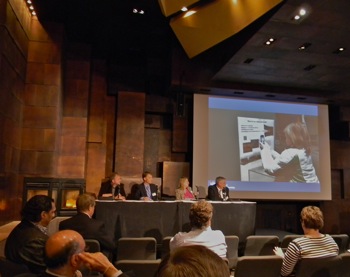 Here is a followup to the post, “Mobile Text Message “Cramming” Scam” since I’ve received a response, embedded below, from an assistant with the State of Minnesota Attorney General’s office.
Here is a followup to the post, “Mobile Text Message “Cramming” Scam” since I’ve received a response, embedded below, from an assistant with the State of Minnesota Attorney General’s office.
The AG’s letter below had four key responses:
- Yes, I was a “victim” of cramming and it is an old scam, with players in the game like the Gambino crime family in the late 1990s
- Our MN AG, Lori Swanson, is very concerned about these practices. What I did not know is that Attorney General Swanson, alongside Senator Amy Klobuchar, is already going after this category, albeit it appears to be only landline cramming and not mobile cramming, the latter an arguably bigger problem (WCCO story from January 7th here)
- Minnesota law provides some protection ONLY FOR LANDLINE CRAMMING and NOTHING FOR MOBILE
- In addition to the MN AG’s office, the Federal Trade Commission and Federal Communications Commission take complaints, and I was encouraged to file mine with them.
Visibility is what matters and Congress will only take action if enough consumers scream about this theft to them. That’s why I was so pleased to see a story on WCCO about mobile cramming (aired on February 1st) so they are paying attention.
Hats off to the journalists at WCCO for covering this story. As more and more of us get online with mobile phones — and our kids get them and respond to who-knows-what online — we need to scrutinize our cell phone bills and most people aren’t savvy enough to even know what’s going on with scams like these.
The wireless companies and scammers economic interests are aligned so there is little incentive for AT&T, Verizon, TMobile, Sprint and others to stop this practice of stealing from all of us. Congress needs to take action…now.

 Students in grades K-12 will be teaching adults how to use iPads, iPods, and other devices and software programs. Conference highlights include:
Students in grades K-12 will be teaching adults how to use iPads, iPods, and other devices and software programs. Conference highlights include: More than 400 organizations have publicly expressed support of the contentious Stop Online Piracy Act (SOPA), or the passage of other similar anti-piracy legislation, and we were stunned to see that Minnesota-based
More than 400 organizations have publicly expressed support of the contentious Stop Online Piracy Act (SOPA), or the passage of other similar anti-piracy legislation, and we were stunned to see that Minnesota-based 
 Wikileak’s founder,
Wikileak’s founder,  Back in September I wrote a post called, “
Back in September I wrote a post called, “ Lerner Publishing
Lerner Publishing




 Every week, people from around the world spend more than 3 billion hours playing video games.
Every week, people from around the world spend more than 3 billion hours playing video games.  The Federal Communications Commission (FCC) just released an 87 page report entitled, “Internet Access Services: Status as of December 31, 2009” (
The Federal Communications Commission (FCC) just released an 87 page report entitled, “Internet Access Services: Status as of December 31, 2009” (